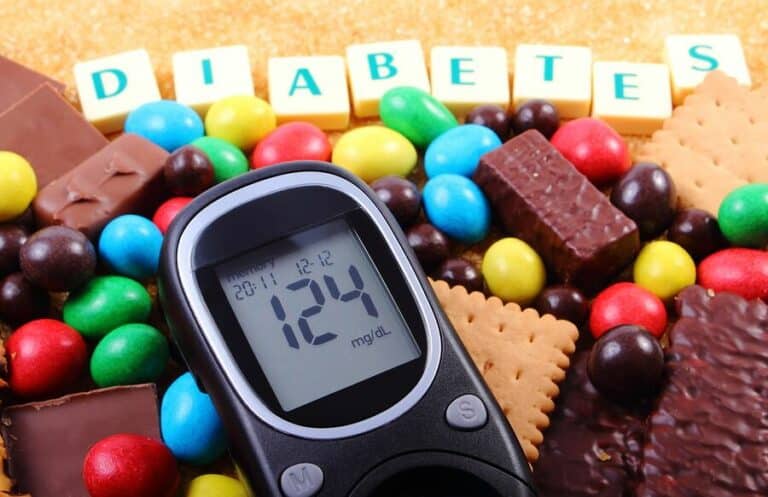Do you sometimes wonder if your older family member with diabetes is taking care of themselves the way they should? You may be especially curious if you’re not around them all the time. After all, when you’re not there, they could be eating poorly or spending too much time sitting around instead of remaining active. One way to know if diabetes isn’t being kept under control is to watch for signs of trouble.
Below are 5 signs your aging relative could use some help controlling their diabetes.

#1: High Blood Sugar Readings
Obviously, one way to know if diabetes is being managed is by looking at the results of blood sugar checks. The doctor should tell the senior what their target blood sugar level is. Encourage them to write down their blood sugar numbers and pay attention to whether they are consistently within the target range. If not, they are either not following their treatment plan, or the plan needs adjusting.
#2: Infections
High blood sugar can make your aging relative more likely to get infections. So, if they are experiencing frequent urinary tract infections or if sores seem to take a long time to heal, they may not be keeping their blood sugar levels within a healthy range.
#3: Increased Thirst and Urination
When blood sugar is too high, the kidney’s work harder to get rid of it through urine. They pull fluids from tissues, which makes the older adult want to drink more. In addition, it also makes them urinate more.
#4: Extreme Tiredness
People with diabetes don’t use insulin properly. As a result, cells aren’t able to take in the sugar they need to create energy. This can lead to the senior feeling tired and unable to do their normal activities.
#5: Blurry Vision
If your aging relative is complaining that they don’t see as well as they used to, it may be because their blood sugar levels are too high. High blood sugar can make the lens swell, making it hard to focus so that things look blurry.
If you’ve noticed one or more of these signs in your older family member, home health care can make a big difference in their health. Home health care providers can assist with diabetes management in several ways.
First, a home health care provider can remind the older adult when it is time to take their medicine or check their blood sugar levels. Home health care providers can also prepare healthy meals that includes plenty of vegetables, fruits, lean proteins, and whole grains. Home health care providers can also encourage more physical activity by going for walks with the senior, driving them to an exercise class, or helping them to work in the garden.
Sources: https://www.mayoclinic.org/diseases-conditions/diabetes/diagnosis-treatment/drc-20371451
https://www.medicalnewstoday.com/articles/317465.php
https://www.everydayhealth.com/hs/type-2-diabetes-management/blood-sugar-uncontrolled-pictures
If you or an aging loved one are considering Home Health Care Services in Westwood MA, or anywhere in Eastern Massachusetts, please call the caring staff at CARE Resolutions – (508) 906-5572.
- How To Help Your Senior Parent If You Live Far Away - January 7, 2025
- Common Concentration Problems after a Stroke - December 16, 2024
- Happy Holidays From Care Resolutions - December 10, 2024



